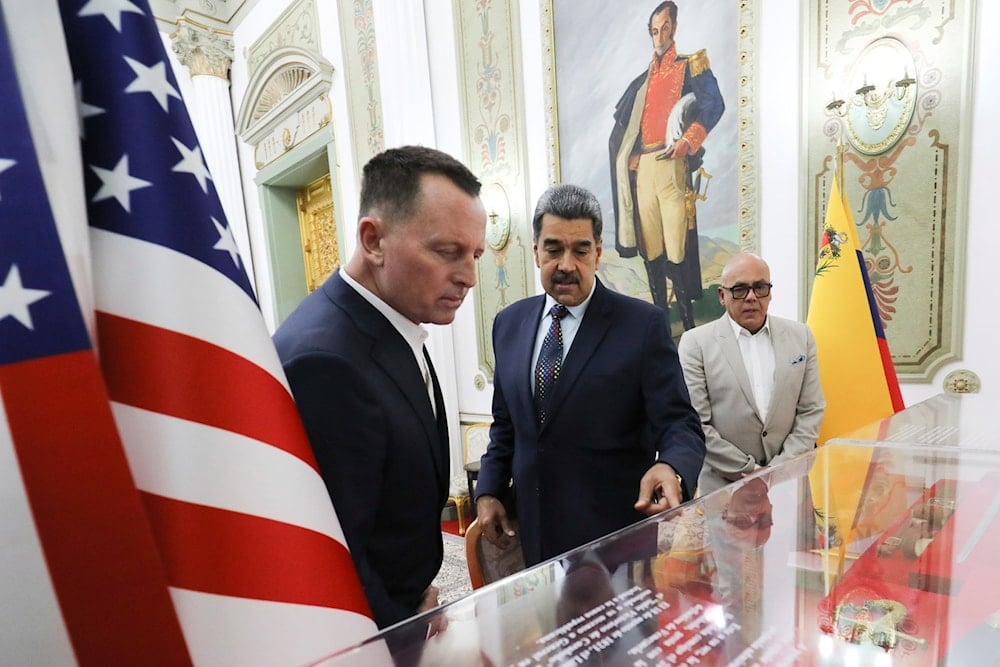Venezuelan Parliament demands return of 18 children detained in US
Venezuelan officials have condemned the separation of migrant children in the United States, denouncing it as a grave humanitarian violation and calling for immediate government intervention.
-

This photo, released by Venezuela's presidential press office, shows Venezuelan President Nicolas Maduro, center, with Richard Grenell, President Donald Trump's special envoy, left, accompanied by National Assembly President Jorge Rodriguez, at Miraflores Presidential Palace in Caracas, Venezuela, on January 31, 2025. (Venezuela's presidential press office, via AP File)
The Venezuelan National Assembly has issued a strong condemnation of the United States, accusing it of unlawfully detaining 18 Venezuelan children separated from their families and demanding their immediate return.
The call was made on Monday by National Assembly President Jorge Rodriguez, who described the situation as a gross violation of human rights and international law.
“We are here to express our outrage and demand the release of our 18 girls and boys kidnapped in the United States. They were torn from their mothers, fathers, grandfathers, and grandmothers and sent to institutions where they should not be. They should be at home, in their country, Venezuela,” Rodriguez said during a press conference.
'Migration is not a crime'
According to Rodriguez, many of the children were taken from their families without proper legal procedures, including the absence of court orders, a breach, he said, of both international norms and the UN Convention on the Rights of the Child.
"These children have not committed any crime. The only crime of their mothers is being migrants, and migration is not a crime. What the US government is doing is a crime against humanity," he added.
Rodriguez revealed that the Venezuelan government has already issued a formal appeal to the US administration, urging the return of the detained children. However, he stated that no official response has yet been received.
The Venezuelan parliament’s call adds to a growing chorus of criticism over US immigration enforcement practices, particularly in cases involving minors and family separation.
Wider context
In March, the Trump administration used the Alien Enemies Act, a wartime-era law from 1798, to deport over 200 Venezuelan men to Cecot. The law had never been used in this context before, and the administration has not released complete documentation for the deportees, creating a lack of transparency.
The Cato review could only examine 174 cases with partial records, revealing inconsistencies and a pattern of misidentification. Authorities often claimed gang affiliations based on tattoos, though many were shown to be personal or cultural, lacking any links to organized crime.
One such case is Andry Jose Hernández Romero, a Venezuelan makeup artist whose tattoos of crowns, tied to Three Kings Day celebrations, were mistaken for gang symbols.
The report came amid a broader US immigration crackdown, as the Supreme Court ruled in May that the Trump administration can proceed with ending Temporary Protected Status (TPS) for Venezuelans. The decision put around 350,000 people at risk of deportation.

 3 Min Read
3 Min Read








